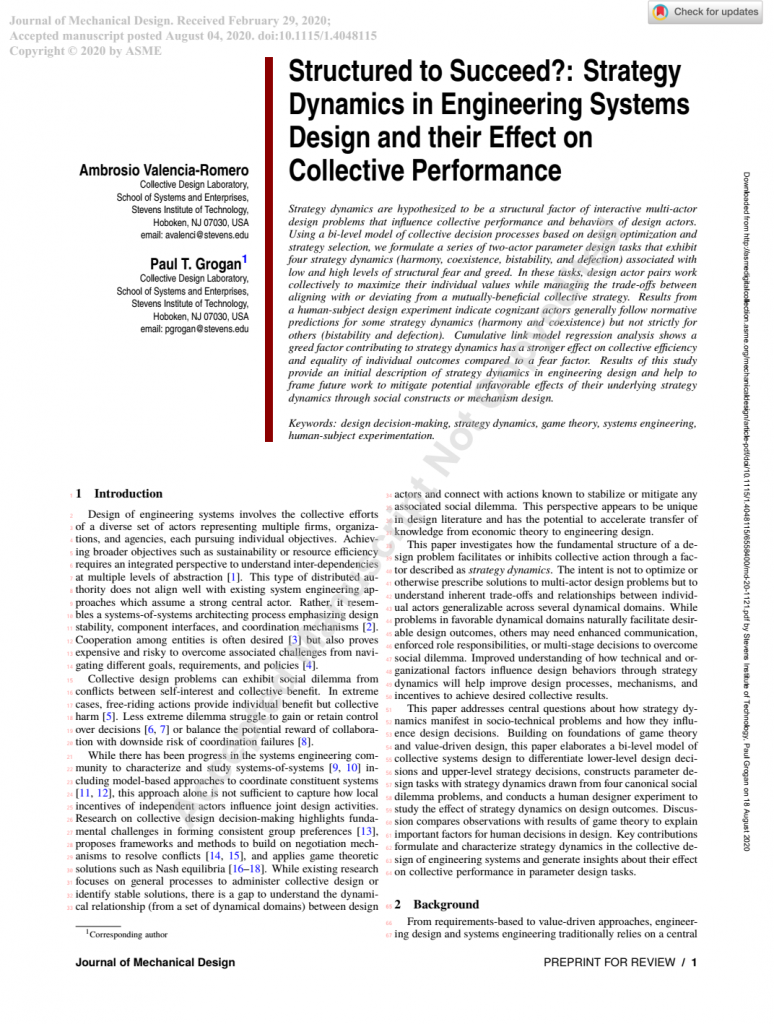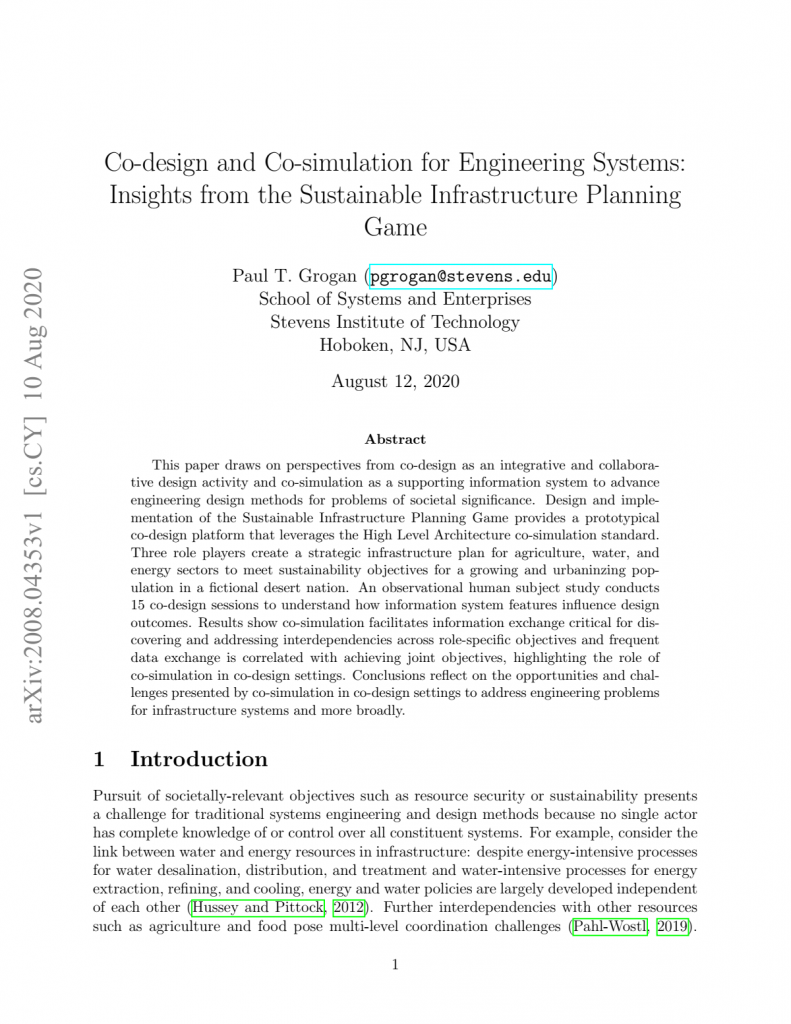A new research article authored by Ambrosio Valencia-Romero and Paul Grogan appears in Journal of Mechanical Design as an accepted manuscript today.
Strategy dynamics are hypothesized to be a fundamental factor that influences interactive decision-making activities among autonomous design actors. The objective of this research is to understand how strategy dynamics in characteristic engineering design problems influence cooperative behaviors and collective efficiency for pairs of design actors. Using a bi-level model of collective decision processes based on design optimization and strategy selection, we formulate a series of two-actor parameter design tasks that exhibit four strategy dynamics (harmony, coexistence, bistability, and defection), associated with low and high levels of structural fear and greed. In these tasks, actors work collectively to maximize their individual values while managing the trade-offs between aligning with or deviating from a cooperative collective strategy. Results from a human-subject design experiment indicate cognizant actors generally follow normative predictions for some strategy dynamics (harmony and coexistence) but not strictly for others (bistability and defection). Cumulative link model regression analysis shows a greed factor contributing to strategy dynamics has a stronger effect on collective efficiency and equality of individual outcomes compared to a fear factor. Results of this study establish a foundation for future work to study strategic decision-making in engineering design problems and enable new methods and processes to mitigate potential unfavorable effects of their underlying strategy dynamics through social constructs or mechanism design.


